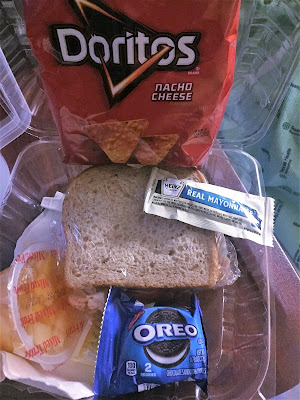Hospitals made the decision to go smoke free when the data was overwhelming. The data on WFPBD (whole foods plant based diet) is now overwhelming and hospitals need to move on this! This will save countless lives.


Here are the hospitals that have fast food restaurants on the hospital premises:

I trained in one of these hospitals (not listed above – it had a Burger Death on site) and it was morbidly entertaining to see a patient pull up to the counter to get one last burger before their bypass surgery. It was even more entertaining to see their cardiologist next to them! Physician heal thyself.
Some hospitals are trying to get ahead of the curve.
Midland Health in Midland, Texas, offers programs for the community – such as whole foods, plant-based grocery tours.
St. Louis Children’s Hospital is offering low-fat, plant-based meals made with no animal products or oils and crafted in small batches by a local company.
The University of Vermont Medical Center aims to have the most sustainable health care food service in the country.
Stony Brook University Hospital, in Stony Brook, N.Y., has a 2,242-square-foot organic rooftop garden that supplies vegetables and herbs for patient meals. My hospital, Boulder Community Health has a rooftop garden as well!
At several Kaiser Permanente Medical Centers staff are learning about plant-powered eating.
American College of Cardiology has a nutrition and lifestyle work-group that has made recommendations re. patient diets in hospitals. This is our opportunity as a healthcare system to educate patients regarding a healthy diet. This is a good start!
Direct quotes from the document:
Hospitalization can be a “teachable moment” for patients who are ready to embrace nutrition as part of the healing process.
Healthful diets may also play a role in the economics of medical care, particularly for heart patients. Acute heart failure is the most common cause of readmission to a hospital within 30 days of discharge. Under the Affordable Care Act, the Hospital Readmissions Reduction Program reduces payments to hospitals for readmissions within 30 days of discharge from the prior hospital stay. To the extent that hospitals help patients adopt healthful habits, their health benefits may be accompanied by financial benefits.Thoughtfully prepared food may also prove to be a marketing benefit. By actively promoting and explaining healthful choices, hospitals can take credit for innovations that were not offered in the past and can neutralize resistance that sometimes greets health initiatives.
Guidelines for Patient Menus
At least one plant-based main dish that is low in fat, sodium, and added sugars will be offered and promoted at every meal.
A minimum of 3 fruit and/or vegetable options will be offered at each meal.
Trans fats will not be used.
Processed meats will not be offered. “Processed meats” include bacon, sausage, ham, hot dogs, and deli meats.
At least one dessert at lunch and dinner will emphasize fruit.Grain products will be predominantly whole grains.
Neal Barnard wrote an engaging article re. the physician’s role in nutrition.
He encouraged us to be leaders, not bystanders in patients’ nutritional counseling, while focusing on remaining evidence-based.
Hopefully this the beginning of the WFPBD (whole foods plant based diet) revolution and will shape American food policy like it did in Finland!
The next thing that needs to be systematically addressed is the food in American schools.